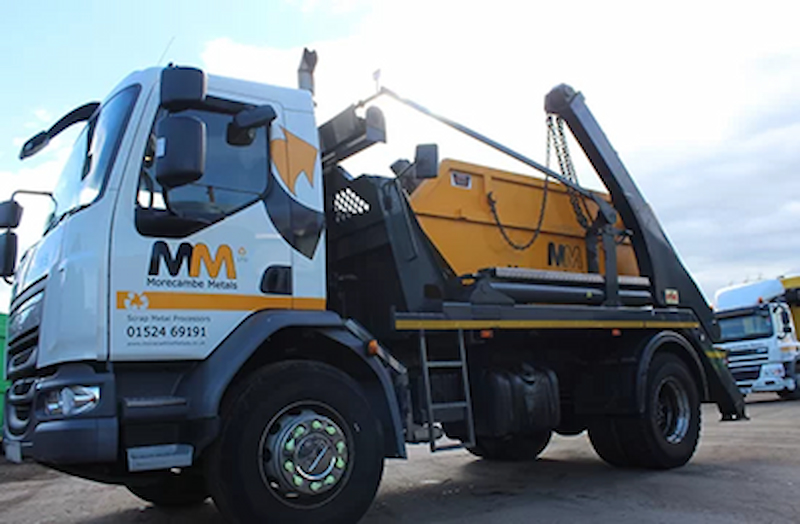Scrap metal buying and selling is a fickle industry, with prices fluctuating regularly. The cost is primarily influenced by the worldwide market for supply and demand. However, the prices can also vary with the quantity and quality of the scrap metal you may be looking to sell. This blog will cover the value of the different types of scrap metal, the importance of scrap metal recycling and the impacts that make the prices fluctuate.
Value of Non-Ferrous Metals
Non-ferrous metals have some precious attributes within the commercial and manufacturing industry. Non-ferrous metals do not contain any iron, providing non-magnetic, rust-free qualities. The metals also have a very low melting point, making the material easily pliable and more efficient within the manufacturing process. For this reason, Non-ferrous metals tend to come at a higher price tag.
Non-ferrous metals include copper, aluminium and lead. Industries such as automobile manufacturers, the construction trade, and aerospace industries value these materials for their lightweight quality. This increases the demand for the products and makes them a valuable commodity within the scrap metal industry. Of course, the price also comes down to the tonnage and quality of the materials. To ensure the highest price possible, the scrap metals must be clean, and the larger quantity will supply the highest price.
The growth of technology and worldwide efforts to preserve the environment has made the need for recycled non-ferrous metals more significant, with a 73.5% increase in price over the last ten years. Our specialist non-ferrous scrap metal processing can ensure that the customer can ensure they are getting the best quality scrap metal for recycling.
Value of Ferrous Metals
Ferrous metals include carbon steel, cast iron and wrought iron. These materials are valued due to their tensile strength and durability. Their magnetic components make this material ideal for motor and electrical manufacturing. Whilst their vulnerability to rust makes them unaesthetic for decorative purposes; their value is substantial within most construction industries. It can be used for building, tools and machinery.
Despite new technology opting for lightweight materials, the need for ferrous materials is still there. However, it is slowly on the decline, leading to a gentler increase in cost with only a 55% increase in the last ten years for grade 1 old steel scrap.
However, ferrous metals are one of the most recycled materials globally. Close to 40% of the world’s steel industry alone is made up of recycled material, so our ferrous metal recycling is essential to us at Morecambe Metals. Recycling these materials take 75% less energy than sourcing raw materials. Because of its strength and durability, it can be recycled efficiently without being strengthened.
The Ecological Value of Scrap Metal
The world is at a critical stage in its environmental status. The world is all looking at ways to improve its sustainable processes to preserve the earth in which we live. Recycling materials can assist in protecting the environment and reducing the energy required for the construction and manufacturing industry, making it a precious component in the future of sustainability.
Ensuring that we provide high-quality materials as a scrap metal buyer is top of our priority for our customers and a response to the danger in which mining new materials can affect our world. As mentioned above, close to 40% of the world’s steel industry is now from recycled scrap metal. We have the incredible ability to recycle up to 2000 tonnes of ferrous metals per week.
Why Do Values of Metal change?
Recently, there has been a significant rise in steel prices since December 2020. Due to the pandemic, many manufacturers had to pause recycling and production processes to respond to the lockdowns and limitations. The cost dramatically increased as the supplies reduced and the demand fell.
We predict there will also be a price rise again due to the energy crisis we are all experiencing. Whether it is recycling or producing raw materials, they all require energy use on a large scale, impacting the cost of materials, just like most other industries.
The London Metal Exchange is responsible for the prices set for the scrap metal industry. For this reason, plantations like Morecambe Metals have little room for negotiation or the ability to pass cost prices to customers. They set the prices mainly by the market demand globally. So if there is little demand for the products worldwide, there will be a price decrease. Alternatively, if there is a high demand and low supply of the product, the prices will increase. Meaning the most significant impact on scrap metal price depends on the supply and demand of a material.
Of course, it also depends on the quality and quantity of the material in question. The cleaner and better the scrap metal quality, the more likely the sellers will receive a higher price. Having a small quantity will also reduce the sale cost because most scrap metal buyers will look to buy items in bulk for recycling.
With over 35 years of experience in the scrap metal industry, we can assist you with your scrap metal needs. Our specialist team members will be available to help. If you would like to know more about our services or processes, contact us today.






